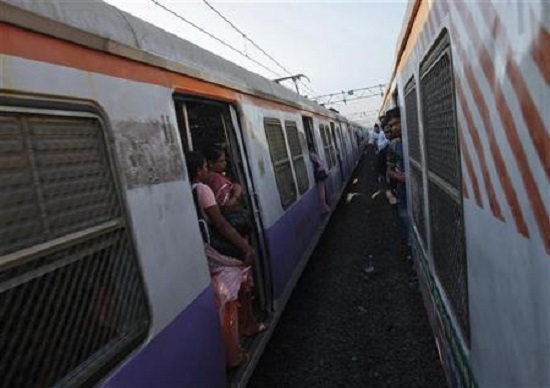
Indian Railways might be looking forward to surplus revenues for FY15 through rail fare hike, but experts hold a different view and note that the hike might shift passengers towards air travel.
Railways have targeted a raise of ₹10, 000 crore in the revenues this year through rail fare hike alone. The targeted total revenue for FY15 is ₹164, 995 crore, which is ₹20 000 crore more than the last years', with half of it coming from hike in passenger fares.
The Railways would have failed to achieve its targeted operating ratio of 89.8 per cent, if they wouldn't have hiked the prices. The 2014 operating ratio had fallen by 0.6 per cent to 90.8 per cent from 90.2 per cent in FY13, according to the Economic Times.
However, the founder of Air Deccan Captain Gopinath thinks otherwise. He said that the sharp increase in the fare will motivate the passengers to opt for air travel.
"When we started Air Deccan, we were targeting rail passengers. People travelling long distances will prefer to travel by flight rather than pay the extra rail fare and also spend more time in reaching their destinations," Business Line quoted Gopinath.
If worked strategically, the airlines can make profits with interesting offers and innovative ideas to attract the customers, he added.
The passengers too appear to hold the same opinion about the shift of passengers from rail to air travel and feel that spending both their time and money on long journeys is pointless.
"14 per cent is way too much. Why would I waste my money and time in a train when I can travel by air by spending almost the same money or just Rs 500 to 1000 more," IBN quoted Sethu Lakshmi, a passenger travelling from Delhi to Kerala next month.
On the other hand, India head of aerospace and defence at KPMG, Amber Dubey does not consider the hike to really work in favour of airlines. He thinks that the Iraq crisis may adversely affect the high taxes and high operating costs of airlines.
"This 14 per cent increase in train fares is too small to create a revolution. Unless airfares come down to, say, three times AC II fares, we may not see a major switch. For that, massive reforms in aviation taxes and other charges need to be undertaken," Dubey explained.










